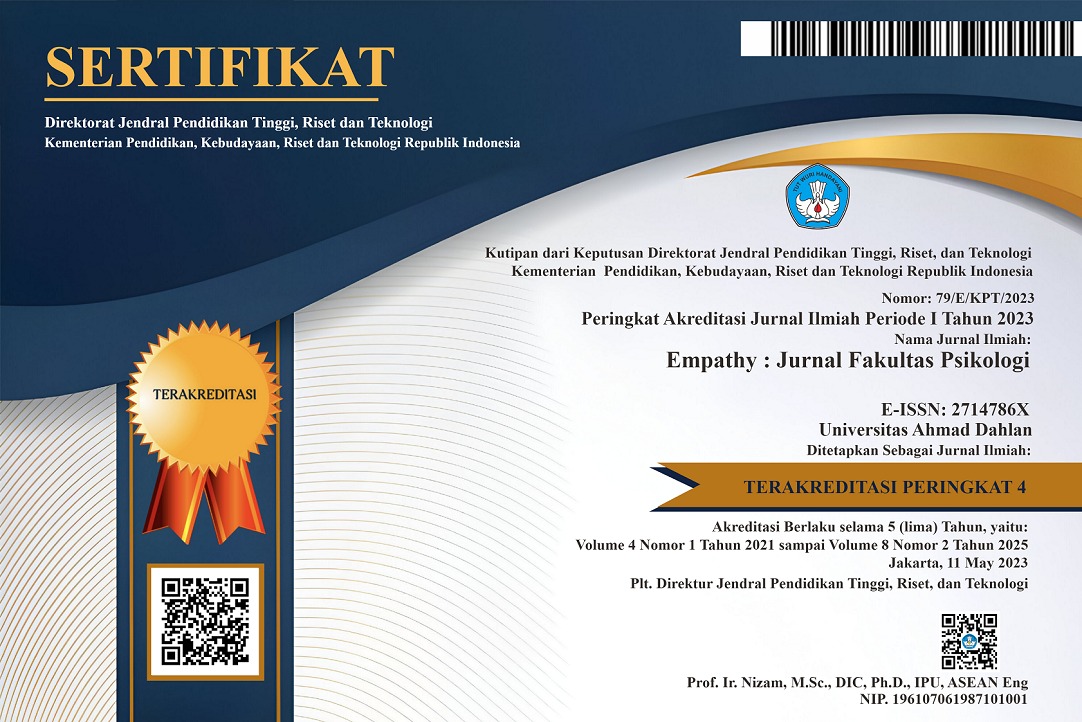Peran Religiusitas dan Optimisme terhadap Kesejahteraan Psikologis pada Remaja
DOI:
https://doi.org/10.12928/empathy.v3i1.3198Abstract
ABSTRACT
This research aims to investigate the role of teenagers’ religiousness and optimism in their psychological well-being. This research sample was established by applying incidental sampling in which involving 152 students at SMU N 1 Turi, Sleman. The teenagers’ religiousness, optimism, and psychological well-being were measured by using religiousness scale, optimism scale, and psychological well-being scale with Likert scale as the model. The gathered data were analyzed by using path analysis. This analysis was done by using AMOS 21 and SPSS 17.0. The statistical results show that there was compatibility between the theoretic model, which consisting religiousness and optimism, and the empirical model in describing the psychological well-being. Psychological well-being that was described by optimism was 18.5 percent while the 81.5 percent was described by the other variables outside the research variables. Psychological well-being that was described by optimism and religiousness was 36.69 percent while the other 63.31 percent was described by the other variables that were not described in this research. There was direct role of religiousness in optimism. There was no direct role of religiousness in psychological well-being. There was direct role of optimism in psychological well-being. The optimism could not mediate between the religiousness and psychological well-being.
Key words: religiousness, optimism, psychological well-being
Downloads
Issue
Section
License
Authors who publish with Empathy: Jurnal Fakultas Psikologi agree to the following terms:
- Authors retain copyright and grant the journal right of first publication with the work simultaneously licensed under a Creative Commons Attribution License (CC BY-SA 4.0) that allows others to share the work with an acknowledgment of the work's authorship and initial publication in this journal.
- Authors are able to enter into separate, additional contractual arrangements for the non-exclusive distribution of the journal's published version of the work (e.g., post it to an institutional repository or publish it in a book), with an acknowledgment of its initial publication in this journal.
- Authors are permitted and encouraged to post their work online (e.g., in institutional repositories or on their website) prior to and during the submission process, as it can lead to productive exchanges, as well as earlier and greater citation of published work.

This work is licensed under a Creative Commons Attribution-ShareAlike 4.0 International License.



